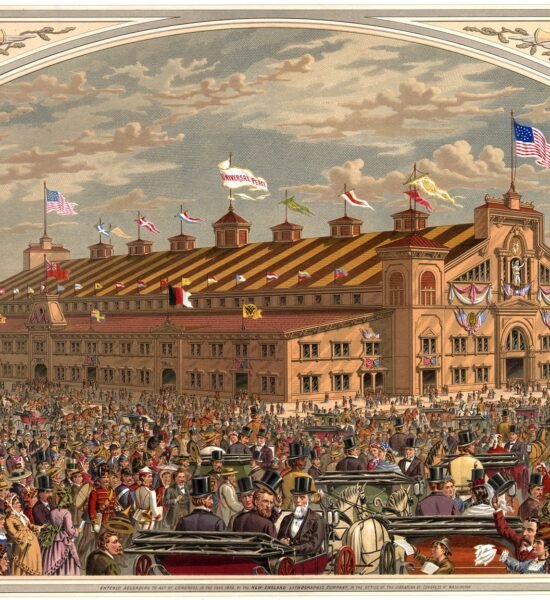Introduction
Music festivals have become an integral part of American culture, drawing millions of attendees each year to experience the magic of live performances. However, few are aware of the origins of these grand events. The first music festival in the United States paved the way for the rich tradition of musical gatherings that we celebrate today. This blog delves into the history, impact, and legacy of the pioneering music festival that started it all.
The Historical Context: A Prelude to Harmony
The early 19th century was a period of significant cultural development in the United States. As cities grew and communities formed, the thirst for cultural and social activities intensified. Music, being a universal language, became a key component of these gatherings. The first music festival in the United States can be traced back to the year 1838 in Boston, Massachusetts.
Boston’s Revolutionary Music Festival
The Visionaries Behind the Festival
The Boston Academy of Music, founded in 1833 by Lowell Mason and George James Webb, was instrumental in promoting music education and appreciation. Their vision was to create an event that would not only showcase the musical talents of the era but also educate and inspire the masses. The Boston Academy of Music played a crucial role in organizing the first music festival in the country.
The Event Itself: A Grand Debut
In June 1838, the Boston Academy of Music hosted a week-long festival at the Odeon, a prominent venue in the city. This festival, known as the “Boston Music Festival,” featured performances by local choirs, soloists, and orchestras. The repertoire included classical pieces by composers such as Handel, Haydn, and Mozart, alongside contemporary works by American composers.
The festival was a resounding success, attracting large audiences and receiving positive reviews from the press. It set a precedent for future music festivals by demonstrating the public’s enthusiasm for such events and the potential for fostering a deeper appreciation of music.
The Impact and Legacy of the Boston Music Festival
Cultural Impact
The Boston Music Festival had a profound impact on the cultural landscape of the United States. It highlighted the importance of music as a form of artistic expression and social cohesion. The success of the festival encouraged other cities to host similar events, leading to a proliferation of music festivals across the country.
Educational Influence
One of the primary objectives of the Boston Music Festival was to promote music education. The festival featured lectures and workshops aimed at educating both musicians and the general public. This emphasis on education helped to elevate the standards of musical performance and appreciation in the United States.
Inspiration for Future Festivals
The Boston Music Festival inspired numerous other music festivals in the following decades. The idea of bringing together diverse musical talents and creating a communal experience resonated with many, leading to the establishment of various music festivals nationwide. Notable examples include the Cincinnati May Festival, established in 1873, and the Newport Music Festival, which began in 1969.
The Evolution of Music Festivals in the USA
From Classical to Contemporary
While the early music festivals primarily focused on classical music, the genre has since expanded to include a wide array of musical styles. Today, music festivals in the United States celebrate everything from rock and pop to jazz, blues, country, and electronic music. This evolution reflects the dynamic and diverse nature of the American music scene.
Iconic Modern Festivals
The legacy of the Boston Music Festival can be seen in modern-day festivals such as Coachella, Lollapalooza, and Bonnaroo. These events attract thousands of attendees and feature performances by some of the biggest names in the music industry. They have become cultural phenomena, drawing fans from around the world and contributing significantly to the economy.
The Lasting Significance of Music Festivals
Economic Impact
Music festivals have a considerable economic impact, generating revenue through ticket sales, merchandise, and tourism. Cities hosting major festivals often experience a boost in local business, as visitors spend money on accommodations, food, and other services.
Social and Cultural Cohesion
Music festivals provide a unique opportunity for people from diverse backgrounds to come together and share a common experience. They foster a sense of community and belonging, creating lasting memories and forging new friendships.
Platform for Emerging Artists
In addition to featuring established artists, music festivals often serve as a platform for emerging talents. This exposure can be crucial for new artists looking to gain recognition and build their careers.
Conclusion
The first music festival in the United States, held in Boston in 1838, was a groundbreaking event that set the stage for the vibrant tradition of music festivals that we enjoy today. Its impact on culture, education, and the music industry is undeniable. As we revel in the myriad of musical celebrations that dot the American landscape, it is important to remember and honor the pioneering spirit of the Boston Music Festival and its role in shaping the nation’s musical heritage.




